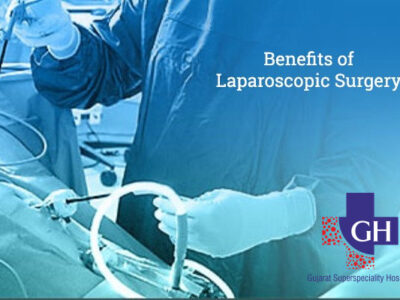Kidney Cancer
Surgery is the main and most effective treatment for most kidney cancers. Surgery is done depending on the stage and location of cancer and other factors. The surgery done to remove the entire kidney including the tumor is known as a Radical Nephrectomy. Whereas, the surgery which is performed to remove the cancer alone, along with some of the surrounding kidney tissue is known as a Partial Nephrectomy.
Laparoscopic nephrectomy
In the laparoscopic nephrectomy, special long instruments are inserted through the incisions, each of which is about 1/2-inch (1.27cm) long, to remove the kidney. The laparoscope is a long tube with a small video camera on the end. This lets the surgeon see inside the abdomen. Usually, one of the incisions has to be made longer in order to remove the kidney.
Bladder Cancer
Most of the Bladder Cancers are treated by surgeries. The type of surgery done depends on the stage of the cancer.
Radical Cystectomy
If the cancer is larger or is in more than one part of the bladder, a Radical Cystectomy will be needed. This operation removes the entire bladder and nearby lymph nodes. In the case of men, the prostate and seminal vesicles are also removed. In women, the ovaries, fallopian tubes, the uterus, cervix, and a small part of the vagina are removed too.
Most of the time, Cystectomy is done through an incision in the abdomen. You’ll need to stay in the hospital for about a week after the surgery. You can usually go back to your normal activities after several weeks.
In some cases, the surgeon may operate through many smaller incisions using special long, thin instruments, one of which has a tiny video camera on the end to see inside your body. This is called laparoscopic, or “keyhole” surgery. The surgeon may either hold the instruments directly or may sit at a control panel in the operating room and use robotic arms to do the surgery known as a Robotic Cystectomy. This type of surgery may result in less pain and quicker recovery because of the smaller cuts.
Prostate Cancer
Surgery is a common choice to try to cure prostate cancer if it is not thought to have spread outside the prostate gland.
The main type of surgery for prostate cancer is a Radical Prostatectomy. In this operation, the surgeon removes the entire prostate gland plus some of the tissue around it, including the seminal vesicles.
Laparoscopic Radical Prostatectomy
For a Laparoscopic Radical Prostatectomy (LRP), the surgeon inserts special long instruments through several small incisions in the abdominal wall to remove the prostate. One of the instruments has a small video camera on the end, which lets the surgeon see inside the body.
Laparoscopic Prostatectomy has some advantages over open Radical Prostatectomy, including less blood loss and pain, shorter hospital stays (usually no more than a day), faster recovery times, and the catheter will need to remain in the bladder for less time.
The rates of major side effects from LRP, such as erection problems and trouble holding urine seem to be about the same as for open prostatectomies. The recovery of bladder control may be delayed slightly with this approach.
Gujarat Super Speciality Hospital provides the best laparoscopic surgery for Kidney, Bladder and Prostate Cancer. We are equipped with all the advanced technology and facilities to provide holistic treatment to our patients.


